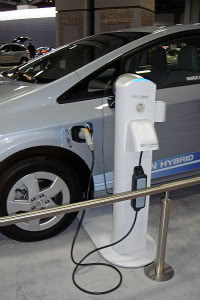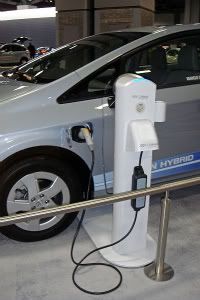Frequent blogger Cameron Atwood writes about the skyrocketing rates of cancer in our world, writing:
I want to call readers’ attention to:
http://www.gotapex.com/cooking-and-food-subforum/167290-100-years-of-cancer-history.html
…where there is an attached attempt to minimize but not dispute the data…
…and here:
http://wiki.answers.com/Q/Is_there_more_cancer_today_than_hundred_years_ago
…where the information is left to stand on its own.
In terms of concretely sourced data:
According to the WHO, 23.65% of all deaths in 2002 were from cancer worldwide. 13.6 million people died of cancer that year.
That data is here:
http://en.wikipedia.org/wiki/List_of_causes_of_death_by_rate
According to the CDC there were 64 cancer deaths per 100,000 people in the US in 1900, and in 1958 there were 146.8 per 100,000 – more than double. By 1994 the rate of death from cancer in the US was 205.2 per 100,000 – more than triple the 1900 rate.
Those stats are recorded here:
http://www.cdc.gov/nchs/data/dvs/lead1900_98.pdf
I hope readers find this information helpful.
I completely agree with this. But here’s a challenge for you. Ask a few MDs and RNs about this phenomenon (which I’ve done dozens of times over the 20 years or so). You’ll get the same answer with laser-like consistency: cancer 100 years ago was just as prevalent, but it was almost never diagnosed, and most people who would died from cancer had they lived longer died younger due to other causes, e.g., gunfights, accidents, or other diseases.
I say bull-hockey. Is it the pseudo-food we eat, the toxins we breathe, the electromagnetic fields we live in 24/7/365 – or some combination of those — and perhaps other environmental pathogens? I don’t know, but I find it astonishing that any educated person could suggest that our modern lifestyle is not causing cancer.
As wrote in the conclusion of my book:
I predict that it will become increasingly clear that the energy companies have acted very poorly in creating and covering up an enormous world health hazard. I forecast that in 50 years, these companies will be subjected to the same disdain that the tobacco industry is receiving today in terms of class-action lawsuits and broad societal condemnation……Over the coming decade, you’ll see all manner of smoking guns around deliberately withheld information related to fossil fuels and public health.










 I have a great deal of sympathy for people who struggle with the math and logic of renewables. After all, I’m one of them.
I have a great deal of sympathy for people who struggle with the math and logic of renewables. After all, I’m one of them.
